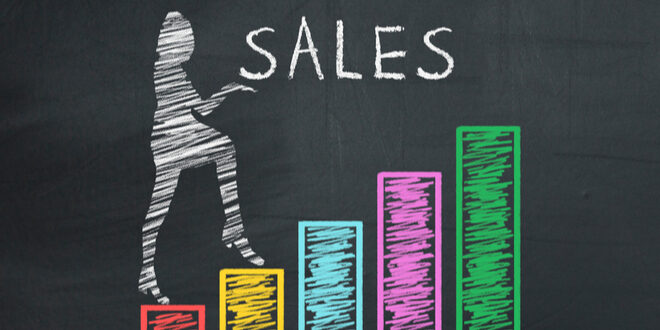Sales will still grow, but that increase will be lower than last year, mostly because of inflation. Online sales will continue to rise.
One year ago, Deloitte, the global accounting and professional services firm, was predicting that retail sales during the holiday shopping season would rise seven to nine percent year-over-year, with total sales around $1.2 trillion.
That three-month forecast was based mostly on COVID-19 having slowed down, and people being anxious to spend money after nearly two years of dealing with pandemic-related restrictions.
Twelve months later, with Black Friday five weeks away, the London-based firm isn’t predicting a down Christmas shopping season, but it’s not quite as optimistic as it was one year ago.
Holiday retail sales this year probably will increase between four and five percent compared to the 2021-22 Christmas season, according to Deloitte.
Overall sales are expected to generate around $1.4 trillion from November to January, which retailers consider the holiday shopping season. That’s slightly higher than what Deloitte was predicting one year ago, but much of that increase can be attributed to inflation.
Deloitte also predicts e-commerce sales to grow this year to 14.3 percent – a 1.5 percent increase – year-over-year during that three-month period. Online sales will likely end up between $260 billion and $264 billion.
Those numbers weren’t far from last year’s forecast: 11 percent to 15 percent sales growth from the 2020 Christmas season, with sales between $210 billion and $218 billion.
So holiday sales, both traditional and online, are expected to grow this year, but not as much as they did last year. That’s because the economy is slower than it was one year ago and inflation is taking a toll on spending, said Danel Bachman, Deloitte’s U.S. economic forecaster.
A drop in demand for durable goods, which accounted for most consumer spending during the pandemic, is also expected.
“We anticipate more spending on consumer services, such as restaurants, as the effects of the pandemic continue to wane,” Bachman said in a statement. “Inflation will also help to raise dollar sales, although retailers will see less growth in sales volume.”
That consumers will buy more gifts and other items in 2022 than they did in 2021, but pay more for them than they did one year ago will probably be the dominant theme of this year’s Christmas shopping season, according to one local economist.
“I can’t give you a specific number, but I do expect to see an increase in sales this year compared to last year,” said Robert Kleinhenz, an economic consultant in Long Beach. “We also have inflation, but I think people are still ready to spend money.
“The question is, are they going to spend it on goods or services? If they spend their money on goods it will be a good holiday season.”
Boston-based Bain & Co., is more optimistic about the upcoming holiday shopping season.
In a forecast issued Sept.15, the global economic consulting firm said U.S. retailers can expect a “robust” 7.5 percent growth in sales this year. That would be below the 13.2 percent year-over-year growth rate posted one year ago, but well above the average annual five percent growth rate recorded by Bain during the past 10 years.
In a survey conducted in August, most consumers told Bain that they had confidence in the U.S. economy’s immediate future, and that they expect to spend more on Christmas gifts this year than they spent last year.
Retailers should consider making adjustments to their supply chains, including being careful about marking down prices on excessive inventory, the survey found.
With inflation being such a major factor, stores should also let their customers know why their brands represent a savings.
The National Retail Federation in Washington, D.C. hasn’t issued its 2022 holiday shopping forecast yet, but it did identify several factors retailers should take into consideration this year, based on a survey of 2,000 consumers it conducted in September:
- Despite some shifts in buying patterns, 45 percent of U.S. consumers say they plan to shop on Black Friday;
- Retailers should adjust their promotion strategies and marketing calendars to meet consumer demand, as sales will likely change as the season progresses. That could mean starting holiday sales early, or acknowledging that promotions and sales are more important this year because of inflation;
- Forty percent of those surveyed said they expect prices to go up between now and the end of the year, so it’s better to buy gifts now, while 31 percent said “buy now” because deals aren’t likely to get better between now and Dec. 24;
- Retailers began planning for holiday shopping earlier this year, having learned from the supply chain disruptions caused by the pandemic. Fifty eight percent of those surveyed said sales and promotions are more important to them this year than they were one year ago.
But sales and promotions might be a problem from a retailer’s point of view, said Jay Prag, professor of economics at the Drucker School of Management at Claremont Graduate University.
“I don’t see a lot of that this year, because with inflation, if you cut your prices you cut into your profit margins, said Prag, who predicts a “flat” Christmas shopping season this year. “Not raising prices this year will be a discount, although it won’t feel like one.”
 IE Business Daily Business news for the Inland Empire.
IE Business Daily Business news for the Inland Empire.


